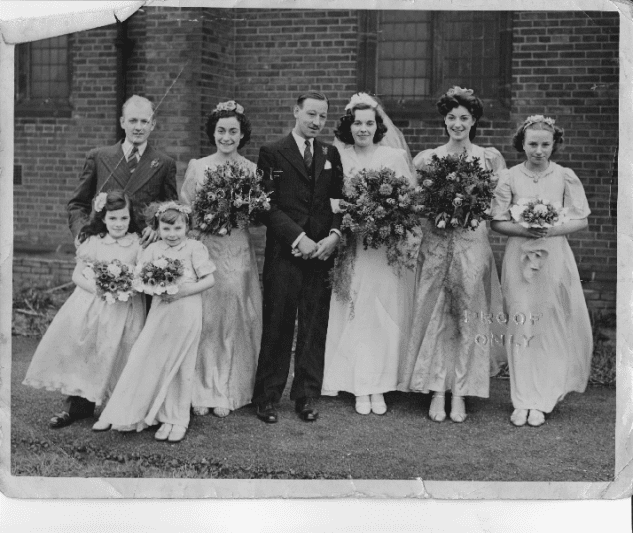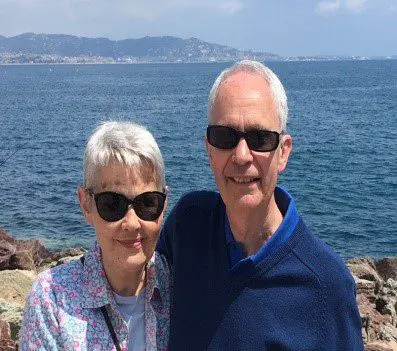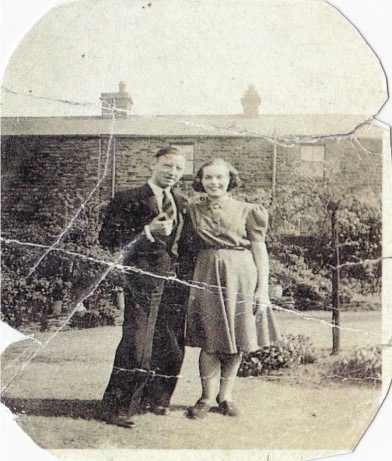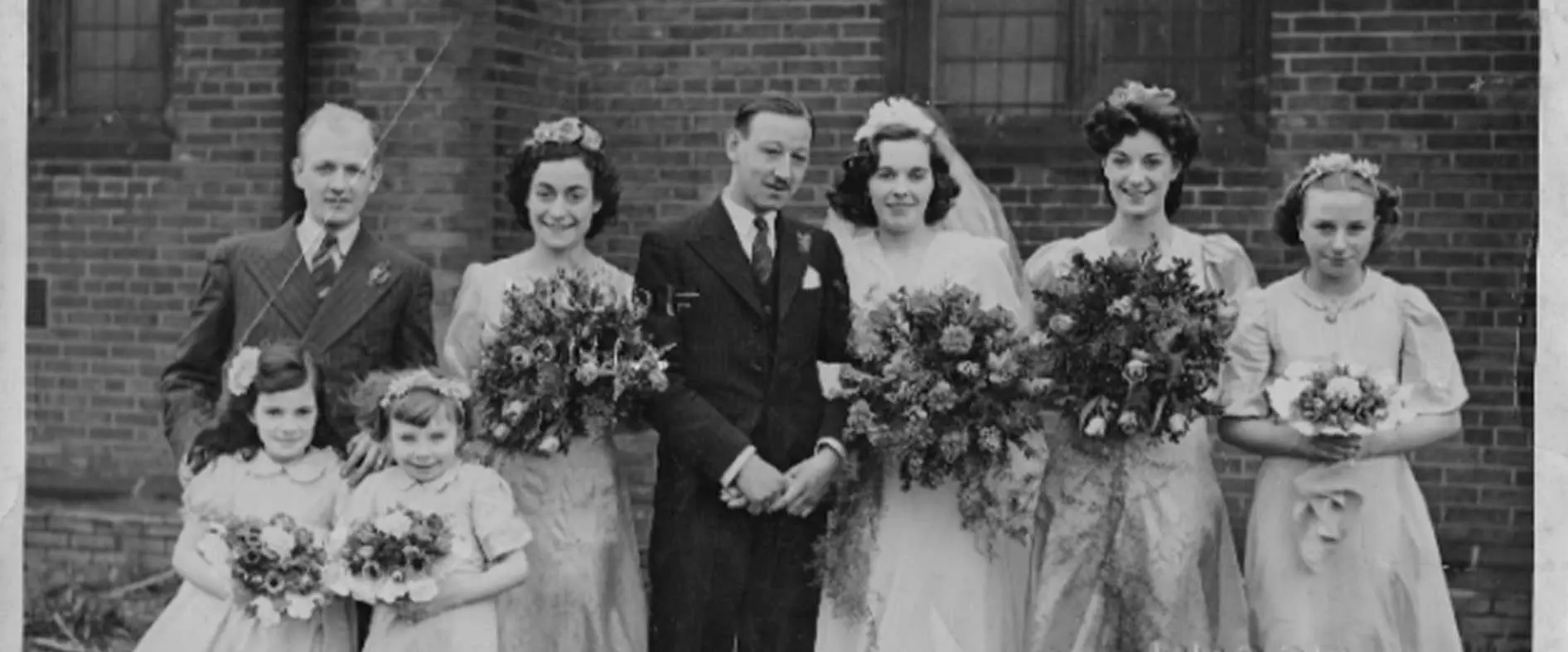“Mum was a fiercely patriotic person and never forgot all the suffering in the Second World War and recent times. We do hope this money will help some of the soldiers.”
Kathleen (Kath) Wilcock died, aged 95, in 2017. In 2018 a letter from her daughter, Judith Gilpin, explained that Kath had left the Army Benevolent Fund (ABF) a gift in her Will.
As Judith later said, her parents spent the first four years of their marriage apart because of the Second World War. Judith’s father Bill was part of the Second British Expeditionary Force, and following his and Kath’s wedding in 1941 he was sent to the Middle East.
“No leave, no telephones, no emails, no Skype – just some wonderful letters and diaries to record their constant love.”
As a driver in 911 General Transport Company, RASC, Bill drove thousands of miles. He remained in the Middle East until the war in Europe ended in 1945, and was present at both El Alamein and the Mareth Line.
Meanwhile his marriage to Kath was sustained by letters only, which along with two of Bill’s war diaries, Kath kept safe all her life. “They were able to keep in touch through long years of separation. I think this explains why my mother was so keen to remember the Services community in her Will,” said Judith.

In her original letter, Judith explained that she and her husband Andrew were regular ABF supporters themselves. Continuing her mother’s legacy, Judith and Andrew have also kindly pledged to leave the ABF a gift in their Will.
“They defended us in our hour of need; some have suffered life-changing injuries. The remaining Veterans deserve our thanks and help, now and for the future. This is why we choose to support them.”
Judith was born in 1947, at Moorlands Maternity Home in Dewsbury. Kath and Bill didn’t have their own home at the time, so were living with Bill’s mother. “It was also the beginning of the Great Freeze in 1947!” said Judith.
Although she was christened into the Church of England and educated in a church school, Judith explained that it was Kath and Bill who ultimately taught her right from wrong, and to be a decent person.
“My parents struggled to get a house after the war, but they saved up and eventually got one. I learned from them that you had to save up and not be frivolous with money, then you could get what you could afford.”
“I was quite fiery when we were first married! But we’ve stuck together and Andrew is such a calming influence on my life.”
Judith worked for the Department of Employment for 36 years, marrying her husband Andrew in 1971. Still married today, Judith described Andrew as “calming and temperate… not an argumentative person. He, along with my parents, have quietly guided me through life.”

“We decided to leave the ABF money in our Will because my father was in the Army and my mum’s brothers also served. Family connections are important to us, and so is loyalty to our country through the armed forces.”
Judith and Andrew first donated to the ABF in 2006, becoming regular supporters in 2013. “I don’t think there has been enough support for the soldiers from the various governments,” Judith explained. “So we’ve chosen to split our estate in half, with half going to our relations and the other half to our chosen charities, which include the ABF.”
When asked what she felt was the most important aspect of the ABF’s work, Judith was quick to reply. “Helping our soldiers and their families adjust to the conditions they find themselves in,” she said. “Things like home adaptations and getting soldiers back to fitness, and the grants that look after children who have lost their parents on active service.”
“Leaving the ABF a gift in our Will is about helping people deal with situations they never would have thought they’d be in. To help our soldiers know that many people in this country care about them.”
For Judith, the important part of giving is the effect of people coming together to pledge their support.
“The Veterans are incredible people. We see them going to the D Day commemorations in Normandy – they say every year it’ll be their last reunion but then they go again, remembering their dear friends who never came home.
For me, that’s why giving to the ABF isn’t a chore, but a pleasure.”
“Mum was a fiercely patriotic person and never forgot all the suffering in the Second World War and recent times.”
Kathleen (Kath) Wilcock died, aged 95, in 2017. In 2018 a letter from her daughter, Judith Gilpin, explained that Kath had left the Army Benevolent Fund (ABF) a gift in her Will.

As Judith later said, her parents spent their first four years of marriage apart because of the Second World War. A driver in 911 General Transport Company, RASC, her father Bill was sent to the Middle East in 1941, where he stayed until 1945.
“I think those long years of separation, and my father’s cherished letters, explain why my mother was so keen to remember the Services community in her Will,” said Judith.
Continuing her mother’s legacy, Judith and Andrew have also kindly pledged to leave the ABF a gift in their Will.
“They defended us in our hour of need. The remaining Veterans deserve our thanks and help, now and for the future. This is why we choose to support them.”
Born in 1947, Judith grew up in Mirfield as part of a loving family. She worked for the Department of Employment for 36 years, marrying her husband Andrew in 1971. “He, along with my parents, have quietly guided me through life,” she said.
“Leaving the ABF a gift in our Will is about helping our soldiers know that many people in this country care about them.”
Judith and Andrew first donated to the ABF in 2006. “The ABF’s work is so important in helping our soldiers and their families adjust to new and different lives,” said Judith. “Things like home adaptations and getting soldiers back to fitness, and the grants that look after children who have lost their parents on active service.”
For Judith, the important part of giving is the effect of people coming together to pledge their support.
“We see the Veterans going to the D Day commemorations in Normandy every year, remembering their dear friends who never came home.
For me, that’s why giving to the ABF isn’t a chore, but a pleasure.”

